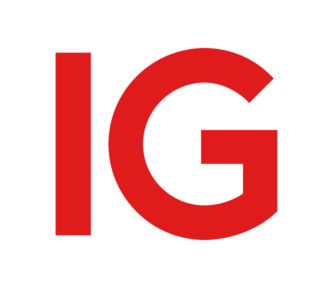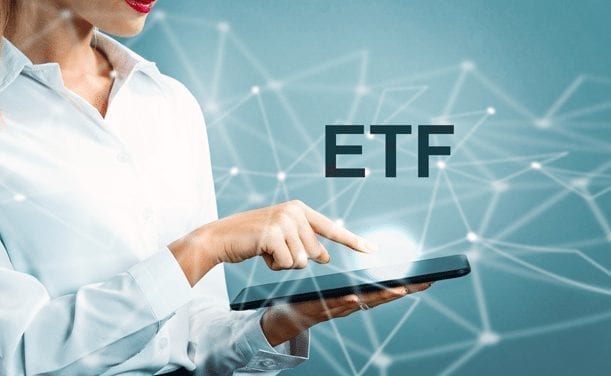To be deemed the top ETF broker the platform and broker itself must meet several vital criteria. Choosing the right broker is no easy process; it requires research as well as an understanding of the industry. Don’t worry, as we will take you through what you need to look out for. In our broker comparison, we assess critical criteria, such as fees, support and trading offers, and explain what to look for when selecting providers. As long as you follow the requirements provided, you will be able to find the best ETF broker for you.
FEES
Opening an ETF trading account should be free of charge. If for some reason the broker says there is a fee, we would suggest researching why and maybe looking at other brokers available. Many brokers charge fees based on the dealing spread, real-time prices and add-ons for trading platforms. Depending on the payment method and broker, you could incur costs for deposits, withdrawals or a certain number of payments per month.
We want to touch on the subject of leverage here. In addition to trading costs and fees, leverage is an essential aspect in a comparison of ETF brokers. As you may already know, leverage allows you to control a larger position in the market than your account balance will allow. You are essentially borrowing money to fund your position. Some brokers stagger leverage on invested capital. Now, while high leverage may seem positive, it can cause less experienced traders to blow their accounts quickly, and so we suggest that you are wary when increasing your leverage.
Account types
The best ETF brokers will offer a range of account types. Starting with beginners, they often go as high as VIP or platinum accounts. The account you have will vary in terms of deposit levels, but support and trading platforms could differ as well. Your account type can also be dependent on trading volume. Traders that begin with a starter account could upgrade to another account, according to trade volume or other factors.
When comparing brokers you should focus on the following points: What services and extras you receive with each account, how each account differs from one another and if there are any offers available.

Platforms
Like most industries, successful ETF trading requires you to have the right tools to perform to the best of your ability. To be able to do that, you will need to have the best platform available. So, when looking at platforms, look for ones that have an intuitive user interface and allow for ease of operation. There are also instances where specially developed software solutions are available – and depending on the broker, you may also be allowed to use existing platforms such as MetaTrader 4.
Having a good structure in the platform is essential, and a customisable interface is particularly beneficial to traders. Make sure you focus on technical indicators and trading systems here. Because when creating a strategy, technical indicators are indispensable. If you have a reliable platform, it will make trading a lot easier.
It may or may not be for you, but you may want to pay particular attention to the mobile applications the broker has. Trading or editing positions on the move have become a must-have, especially amongst retail traders, and so, it is vital to find a broker that provides you with this edge. Make sure it has an easily readable chart layout and the ability to open, close and edit ETF positions smoothly.
Usability
First off, when you land on the ETF brokers website, you need to check that it is available in a language you can understand. While this may sound obvious, sometimes, it is only noticeable upon second glance. Some brokers may have an English language website, but it is often possible to set the language to your preference. Make sure that the translation is complete and easy to understand. Details are essential when assessing a broker.
Navigation around the website is crucial. Think of it as a precursor to how their trading platform and them as a broker may perform. ‘One-click’ navigation is particularly popular as you can find everything about the broker’s offer immediately. Make sure there is easy access to see the following information, contact options, cost models and fees, offers, account types, terms of service, information about the broker and an FAQ page.

CUSTOMER SUPPORT
Trading ETFs, like trading any other asset class, is difficult and there will be hiccups along the way. Therefore, when evaluating a provider, we look closely at the contact options and the quality of the provider’s customer support. On their websites, many brokers provide a live chat option, and you can usually reach brokers via hotlines, e-mail or an online contact form. All of these means of contacting the broker should be free of charge.
When doing your research, it is also essential to factor in the languages spoken by the support team. Quite often, the support staff are English speaking, but many brokers offer other languages too. If the broker you opt for has different account types, make sure to check if the customer support level varies by the type of account you have. It may be that they offer a personal account manager if you have a higher level of account.
PAYMENT METHODS
Trading requires money, and so, you will need to deposit money into your trading account before you can start trading and then if you can increase that account, you are going to want to transfer your profits to your bank account. So we have to assess the different payment methods available.
The top ETF brokers offer credit cards, bank transfer and e-wallets such as Neteller or Skrill. Credit and debit cards are still a popular means of payment, as transactions are uncomplicated and processed within a short time. If you choose to deposit or withdraw via bank transfers, you may want to consider that, while it is very secure, processing usually takes several days. The majority of brokers will also allow you to deposit via other online payment methods such as Skrill and PayPal. The positive of depositing and withdrawing via these methods is that they are swift.
There may be, in some cases, limits and fees associated with deposits and withdrawals. For example, there may be a minimum withdrawal limit. We have seen some ETF brokers set the minimum withdrawal limit at £100 previously. Some providers allow only a certain number of payments per month so that each additional transfer may come with a fee. One last thing to note here is that it’s often the case that brokers will only allow you to make withdrawals using the same method you used to deposit the funds initially. So if you use a specific bank account, you can only withdraw the money into that same bank account.
Best ETF Offers
Many brokers will provide useful additional offers to their customers – starting with education and training. However, only the brokers that provide exceptional education and training experience are deserving of the ‘Best ETF Broker’ tag. Experienced and less experienced traders will benefit from offers such as webinars or video tutorials. Some brokers may provide seminars, whereas others may only provide education and training by way of a blog or an online trading academy. Offers such as an economic calendar or market analysis tools are also useful.

REGULATION AND DEPOSIT PROTECTION
This part of our criteria is probably the most important, so be sure to take notes of what to look for from here if needed. Having a broker that is regulated and provides you with deposit insurance is extremely valuable. However, like with everything, there are no guarantees here. You can still fall foul of an ETF broker bending regulations.
Opening an account with a regulated broker will reduce that possibility by a great deal. The authorities responsible will check brokers’ work at regular intervals and ensure they are adhering to the rules.
To confirm that a broker is regulated, you can look up the directory of the authority specified on the broker’s website and examine their licensing information or possible stock market quotations, amongst other details. Also, be sure to research the broker’s deposit insurance. It will provide additional protection and secure yours and other client funds up to a specific amount if the broker becomes bankrupt.
When taking personal data into account, if you are wary of ETF fraud, you can carry out some simple tricks. When comparing brokers be sure to make sure that the data is encrypted. By choosing a secure password, you can also contribute to your data security.
AWARDS
Our final criteria, as you may have guessed, is awards. Finding information about a broker in financial press articles can be a beneficial tool. We recommend taking positive and negative reviews on forums with a pinch of salt. Because you can never be sure of the circumstances surrounding why the post is negative or positive.
If a broker has won an award or awards, then they will more than likely be mentioned in the press. Many brokers will provide links to media coverage on their website. Take advantage of this opportunity to gain an overview of the current media coverage of the broker and the awards they have won.
Even if a broker has been named ‘Top ETF Broker’ in the past, it is worth seeing if there are any more recent awards. Awards are a positive and essential way of an ETF broker building trust with their clients. Magazines, newspapers and other press associations will go through rigorous tests to check all aspects of a broker. The platforms, broker support services and security are regularly scrutinised. Awards are certainly an excellent means of evaluating a broker. If you can’t find anything online, then you can usually find a broker’s awards listed on their website.








